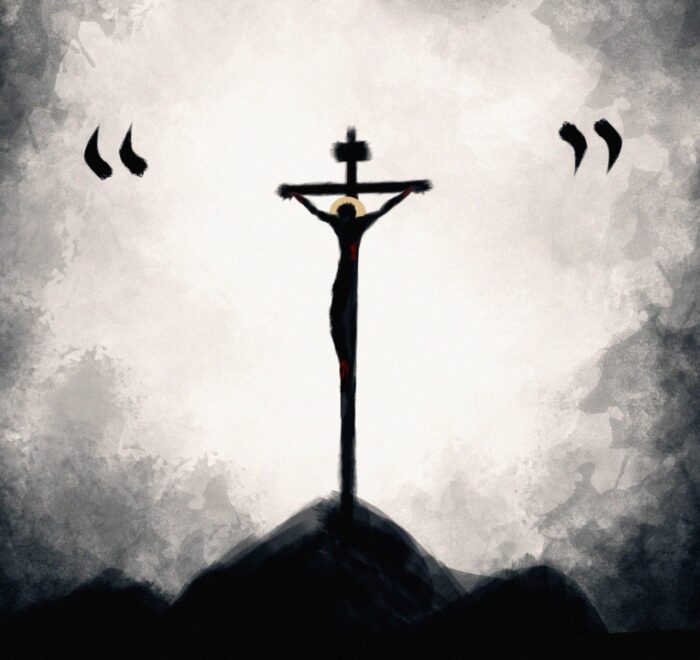“One thing I have asked of the LORD, and that will I seek after: that I may dwell in the house of the LORD all the days of my life, to gaze upon the beauty of the Lord and to inquire in His temple.”
– Psalm 27:4
Wrapping Up
Well, we’ve arrived at the seventh post in this series on Edwardsian Beauty and the cross. I won’t rehearse all that has been covered here, but suffice to say that the Triune God Himself is definitive beauty and we see that beauty most clearly at the cross of Jesus Christ. This is an amazing concept and one worthy of an eternity of consideration (as it will receive!).
In this final post I want to briefly consider three implications that can be drawn from our study.
Communicate Beauty
If what we have studied over the last few weeks is true, and all true Beauty is beautiful only because it consents with the intertrinitarian love of God for God – if that is true (and I believe it is) – then the task of the Christian is to see and love Beauty and help other see and love Beauty. People are going to be damned because they lived as if something other than God was supremely beautiful…they are going to be forever cut off from the life of God because their hearts refused to recognize Him in Christ as the Beautiful One for whom their souls were made. If God is Beauty, then living as if something else is supremely beautiful is to oppose God, and helping people to see True Beauty is to help them see God.
Now, I don’t mean we can leave off evangelism or the proclamation of the gospel – not at all. However I do mean that we should recognize that the good news is called the “gospel of the glory (beauty!) of Christ, who is the image of God” (2 Cor.4:4), and that we should taste it as beautiful and seek to proclaim it as beautiful.
And in addition to explicit gospel witness, the Edwardsian doctrine of Beauty implies that anytime we can get someone to perceive true beauty (that is, something that consents with the supreme love of God for God within the Trinity), anytime we can get someone to perceive true beauty and to feel it as beautiful – we have done something significant. If we can get the unbelieving world to taste true beauty and exclaim, “beautiful” – though that in and of itself will not save them – we are moving in the right direction; we are “saying God” to them. Even a mind sealed shut to the gospel by bad experiences or intellectual prejudices or cultural inoculation cannot defend itself from Beauty. Beauty demands an audience, and if it is true Beauty, then it is an echo of God’s own heart and for an unbeliever to resonate with that tune – even if they are still far out of harmony – is not a bad thing.
So believers, may we know God in Christ to be the most beautiful and soul-captivating reality in all of existence. May our Lord and God be the Sun of Beauty from which all beautiful things in this world receive their light and with whose light they shine. And may we communicate beauty to the world….whether in word or deed or paint or letter or sound or story or food – may our lives be continuous refractions of that singular Beauty who is our Triune God.
Beauty is Personal
Socendly, if all Beauty – from the simple beauty of two spheres to the complex beauty of a forest glade to the spiritual beauty of a husband’s love for his Alzheimer’s-plagued wife – if all true Beauty is a dim reflection or “shadow” of God’s love for God….then all true Beauty is personal. Consider it: the spring and essence of all beauty is love, and love is irreducibly personal, therefore ANY instance of true Beauty is a personal reality.
The unbelieving world believes that the impersonal is more fundamental than the personal, they believe that impersonality gives rise to personality. From that perspective, “Beauty” is nothing more than a conjunction of chance events that stimulate a pleasing internal experience. But for the Christian there is a PERSON beneath all of reality, and the personal gives rise to the impersonal. For the Christian, Beauty is nothing less than a fleeting glimpse of the eternal Joy beyond the walls of the world.
So – Christian – let us receive all beauty as personal! Let us consciously receive sun and clouds and trees, stars and rivers and songs, stories and architecture and food, designs and memories and moments, let us receive all true Beauty as personal, as an external communication of the internal life of God Himself.
Beauty Belongs to the Christian
I do not mean to sound pompous or elitist by saying this, however, I believe it is true. If all beauty is a manifestation of God’s internal life, then beauty truly belongs only to those who have awakened to and been welcomed into this life. The unbeliever is an alien to Beauty; he is a stranger to it. He can enjoy it, he can perceive it, he can even create it, but he does not belong to it and it does not belong to him because he hates the one from whom it comes and to whom it bears witness. This is not so for the Christian. Beauty – as it were – embraces the Christ-lover, she welcomes them to herself because she and they resonate to the same melody – the glory of the Triune God.
Perhaps a picture will be a fitting conclusion to our study. When the unbeliever perceives beauty (the night sky, a moving song, a story, a loved one, a memory), he is like a man standing in the cold outside a banquet hall, looking in on a fest to which he has not (yet) been invited. The smells of the food, the joy of the Master, the glory of the meal…he can see all these from afar, but they are not his and he is to get no closer to the feast than he is now…
But the believer has been invited to the banquet. The smells that tantalize our soul while we stand in the cold street come from food of which we will one day partake…the warmth of the hall will soon envelope our shivering frame…this meal is for us. And for the one who loves Jesus Christ, every appearing of an instance of beauty in this world is a moment when the Master of the banquet looks out the window and meets our gaze and smiles as He prepares the finishing touches for the coming Feast.
Because of Jesus Christ, Beauty is a pledge that the Christian belongs to and will one day arrive at “the place where all the beauty came from,” the heart of the Triune God. [1]
[1] CS Lewis, Till We Have Faces




